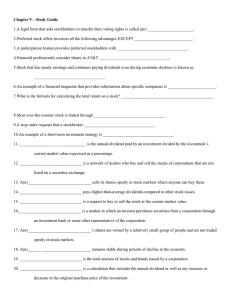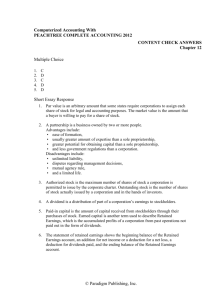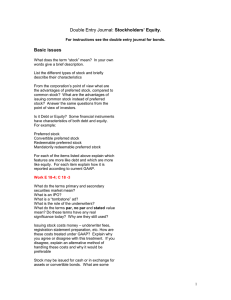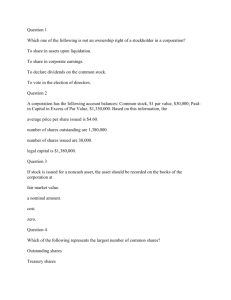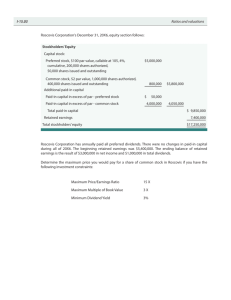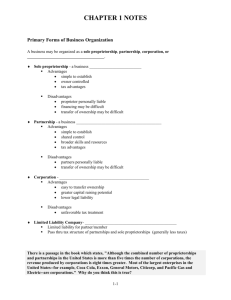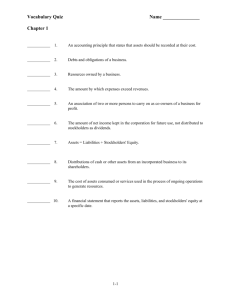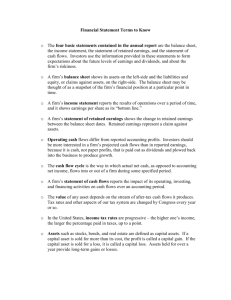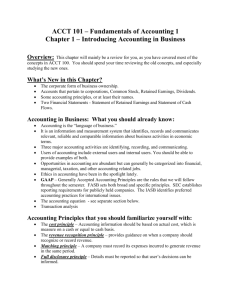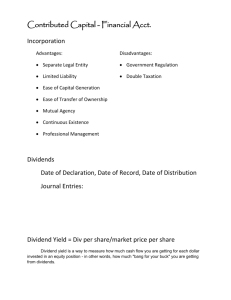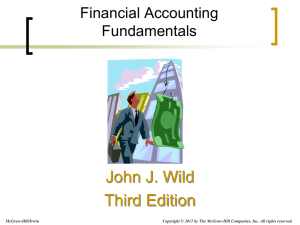Chapter 8
advertisement
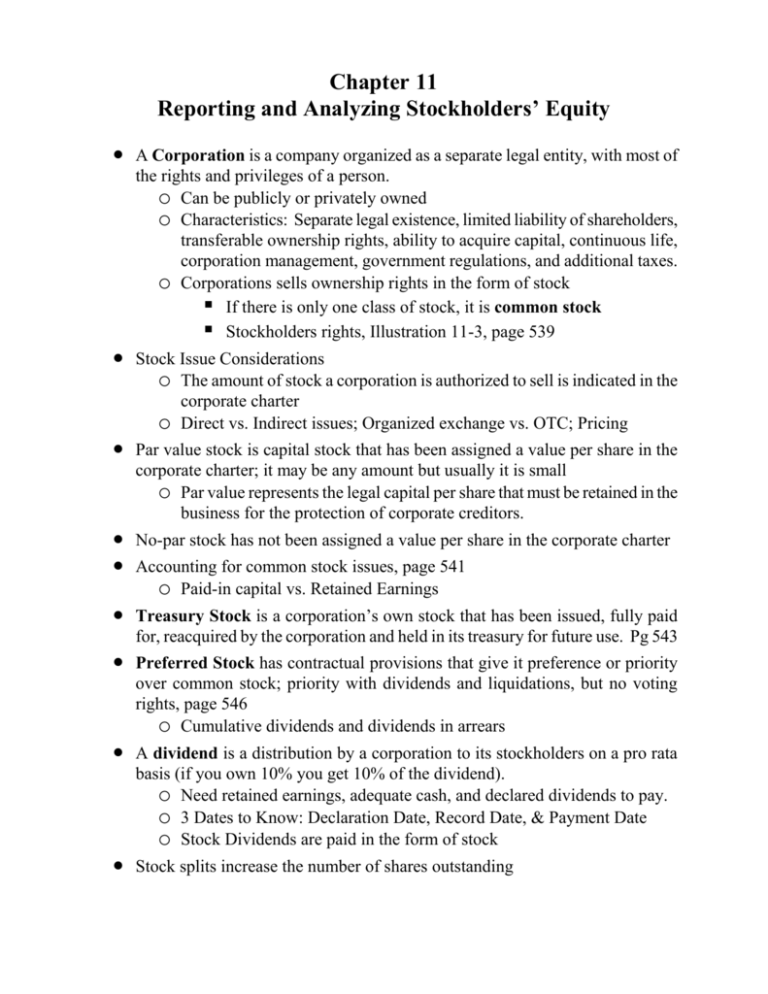
Chapter 11 Reporting and Analyzing Stockholders’ Equity A Corporation is a company organized as a separate legal entity, with most of the rights and privileges of a person. o Can be publicly or privately owned o Characteristics: Separate legal existence, limited liability of shareholders, transferable ownership rights, ability to acquire capital, continuous life, corporation management, government regulations, and additional taxes. o Corporations sells ownership rights in the form of stock If there is only one class of stock, it is common stock Stockholders rights, Illustration 11-3, page 539 Stock Issue Considerations o The amount of stock a corporation is authorized to sell is indicated in the corporate charter o Direct vs. Indirect issues; Organized exchange vs. OTC; Pricing Par value stock is capital stock that has been assigned a value per share in the corporate charter; it may be any amount but usually it is small o Par value represents the legal capital per share that must be retained in the business for the protection of corporate creditors. No-par stock has not been assigned a value per share in the corporate charter Accounting for common stock issues, page 541 o Paid-in capital vs. Retained Earnings Treasury Stock is a corporation’s own stock that has been issued, fully paid for, reacquired by the corporation and held in its treasury for future use. Pg 543 Preferred Stock has contractual provisions that give it preference or priority over common stock; priority with dividends and liquidations, but no voting rights, page 546 o Cumulative dividends and dividends in arrears A dividend is a distribution by a corporation to its stockholders on a pro rata basis (if you own 10% you get 10% of the dividend). o Need retained earnings, adequate cash, and declared dividends to pay. o 3 Dates to Know: Declaration Date, Record Date, & Payment Date o Stock Dividends are paid in the form of stock Stock splits increase the number of shares outstanding Retained Earnings is net income that is retained in the business o If a debit balance exists, it is a deficit and called accumulated deficit in the balance sheet, Illustration 11-13, page 554 Balance sheet presentation of stockholders’ equity, page 555 o Capital stock consists of preferred and common stock o Par value, share authorized, shares issued, and shares outstanding is available for each issue Ratios: Payout Ratio, Dividend Yield, Earnings Per Share (EPS), Price-Earnings (P-E), Return on Equity (ROE) HOMEWORK: o Questions: 7, 8, 18 o Brief Exercises: 5, 8 o Exercises: 1, 2
